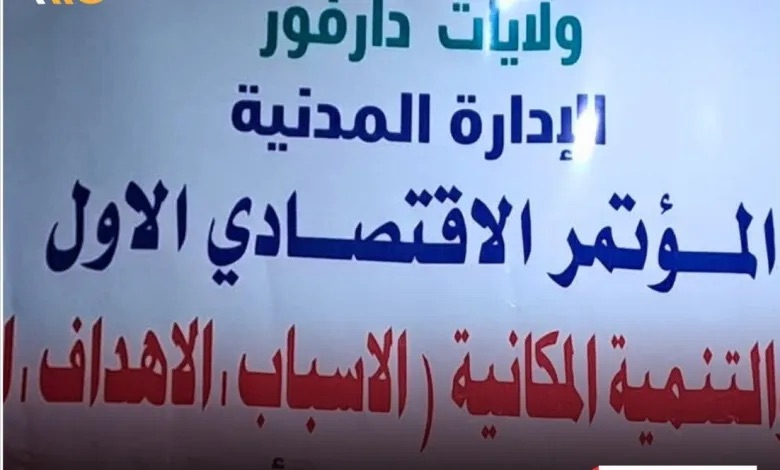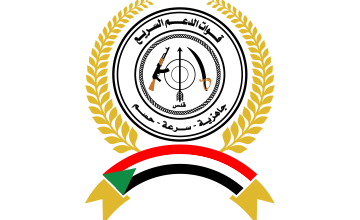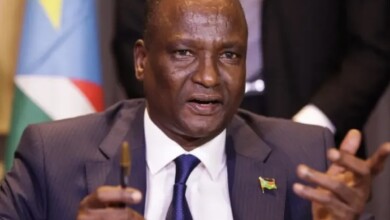Nyala Economic Conference recommends activating Trade Agreements with neighboring countries

The first economic conference in Nyala recommended activating trade protocols and agreements with neighboring countries, as well as free trade and border trade.
The conference, which was held in Nyala and concluded on Tuesday, made a number of recommendations that included halting random tax collection, removing all illegal toll gates on main roads, halting tax exemptions without exception, and prohibiting the abuse of influence.
The conference emphasized the importance of creating alternative markets for marketing local products, activating the revenues of centralized units in areas of control (customs, taxes, specifications, and standards), activating the role of the General Administration for Combating Tax Evasion and the Auditor General in the states, in addition to providing protection for workers in the public and private sectors.
The economic conference called for the maintenance and rehabilitation of roads and bridges in the states, and for developing an economic roadmap in the states under Rapid Support Forces’ control.
It also called for building and unifying a database that includes all revenue sources and raising tax awareness amongst taxpayers.
The conference also recommended rehabilitating veterinary quarantine facilities for export operations, and rehabilitating the Nyala Regional Serum and Vaccine Laboratory as well.
Important Recommendations
On behalf of the heads of Civil Administrations and participating state delegations, the head of the Civil Administration in South Darfur state, Youssef Idris Youssef, shared that the importance of this conference lies in addressing the problems of tax evasion, double taxation, illegal collection between states, and the issuance of documents for trucks passing through each state. He pointed out that the Civil Administration Law must be a unified law, especially regarding the issue of national resources, given that shares are distributed amongst areas of control. He indicated that the conference is the cornerstone of the next founding government. He revealed information in regards to efforts aiming to restore the electronic collection system.
Youssef called on all traders to return to Darfur because the security situation is now safe and stable, enabling them to conduct business and return to their homes and shops.
The head of the Civil Administration in South Darfur state emphasized that they, as governments in areas under the control of the Rapid Support Forces (RSF), are committed to implementing the recommendations.
The Rapid Support Forces’ Directives
For his part, Brig. Gen. Abbshar Jibril Balayel, Commander of the Rapid Support Forces’ Advanced Command, affirmed that the Rapid Support Forces are committed to supporting and implementing the recommendations, emphasizing that there are clear directives from the Forces’ leadership to all its personnel to steer clear of tax collections, levies, and markets. He explained that these gates are inherited from “the former regime and its remnants,” noting that Nyala is currently experiencing a state of security stability. He added, “The thieves who tarnished our reputation in Al-Jazeera and other states have reached Darfur states and have begun committing similar crimes.”
Financing Portfolio
For his part, the representative of the Chambers of Commerce called for the implementation of the recommendations, especially regarding the abolition of double taxation. He called on the states to establish a fund to finance farmers, inan effort to avoid a failed agricultural season, noting that the South Darfur Chamber of Commerce financed (700 farmers) during the previous season.
The economic conference started on (May 18th) at Hamdo Conference Hall, under the title “The Economics of War and Spatial Development (Causes, Objectives, Means and Ends)” with the attendance of heads of Civil Administrations in the states of (South, East, Central and West Darfur) along with others interested in economic affairs and the Chambers of Commerce in the states of Darfur.





